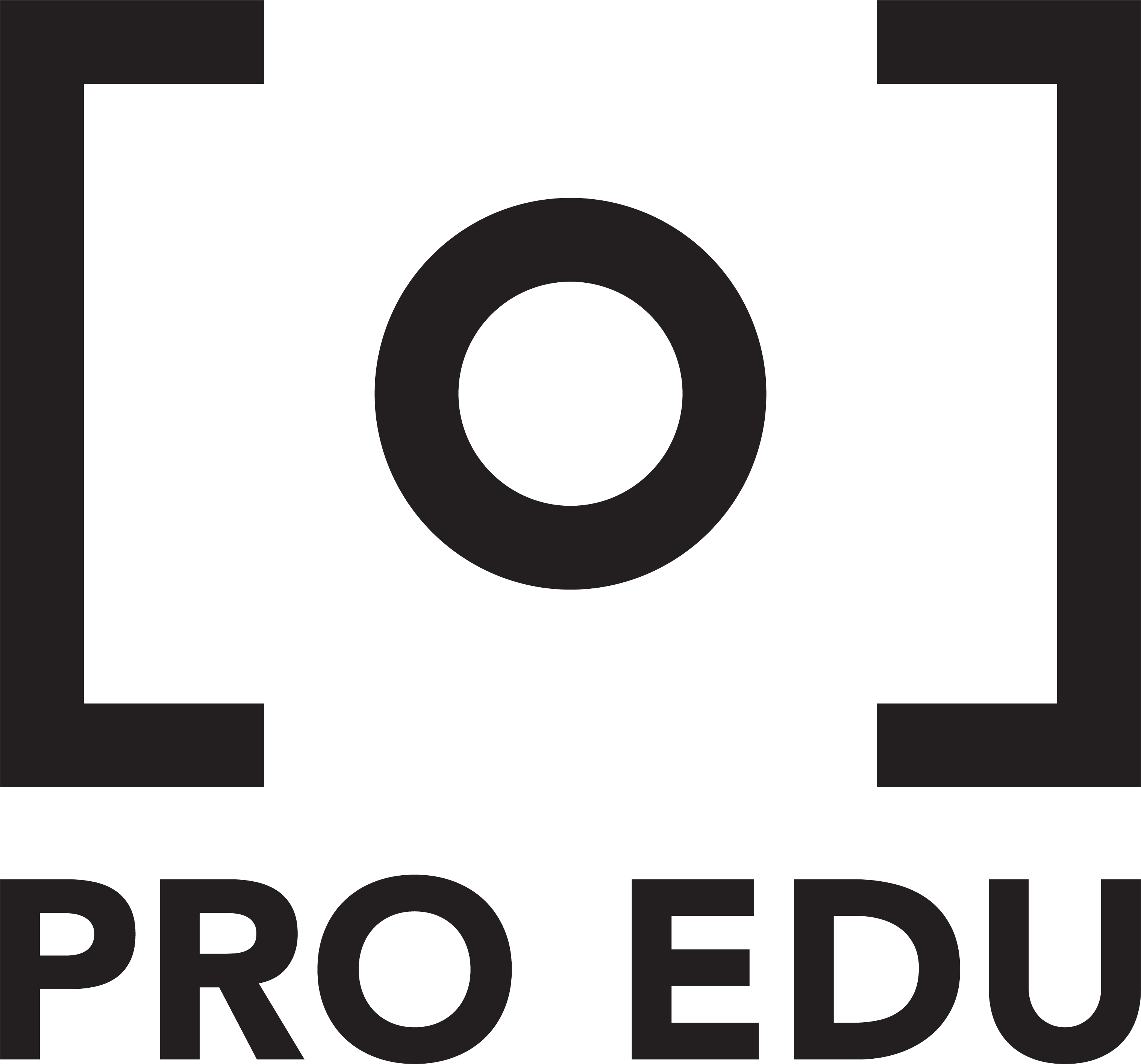Behind the Lens: Real-Life Success Stories from Commercial Photographers – Insights and Inspirations
In the dynamic world of commercial photography, every snapshot tells a story not just of the subject, but of the artist behind the camera. Achieving success in this field is often a combination of technical skill, creative insight, networking savvy, and a relentless pursuit of one's vision. It's a journey marked by continuous learning, adapting, and refining one's craft. We stand to gain valuable insights by exploring the real-life success stories of those who have made a mark in the competitive sphere of commercial photography.
These narratives are more than mere accounts of personal triumph; they are a tapestry woven from the myriad challenges, turning points, and moments of realization that these photographers have encountered. From understanding the business aspects of photography to mastering the latest technological tools, the stories of these visual artists reveal the multi-faceted nature of carving out a successful career. They underscore the importance of a well-crafted portfolio, the benefits of education and collaboration, and the ever-evolving trends that shape the future of photography.
Key Takeaways
- Successful commercial photographers combine creativity with technical expertise.
- Networking and a strong portfolio are crucial for career advancement.
- Continual education and adaptability to trends are key in the ever-changing photography landscape.
The Journey to Success
In commercial photography, success is not just about snapping pictures; it's a complex fusion of mastering the creative process, developing a distinct professional identity, nurturing client trust and overcoming the multifaceted challenges of the industry.
Embracing the Creative Process
We understand that the heart of commercial photography lies in the creative process. It’s here that inspiration takes form through the play of color and composition. The journey begins with the ability to visualize a concept, then to translate that vision into a tangible photograph. Learning from industry masters, like Erik Almas, reminds us that the essentials of this process are something we must continually practice and refine.
Developing a Professional Identity
Establishing a professional identity is also vital. This means building confidence in our style and approach to photography. Our personal touch becomes our brand, differentiating us in a competitive market. This personal branding guides not only the work we produce but also the clients with whom we engage. As we carve out our niche, our professional narrative shapes our career path.
Building Trust with Clients
One of the cornerstones of our success is the relationship we have with our clients. Forming and maintaining client trust is paramount and is cultivated through every interaction and job completed. By fostering strong, personal engagement with clients, we build a reputable image and encourage repeat business. Such connections are not merely transactional; they're partnerships that can lead to mutual success.
Overcoming Industry Challenges
The path to achievement in commercial photography is riddled with hurdles, from competition to industry volatility. We recognize that success often comes from not just navigating but embracing these challenges – finding the causes that drive us and pushing past setbacks with resilience. We draw on our creative and professional prowess to remain adaptable and to thrive amidst adversity.
Throughout our journey, we continually hone our craft, seal our identity, earn trust, and rise above challenges, all in pursuit of photography success.
The Business of Photography
In the commercial photography industry, photographers must blend artistry with savvy business acumen to thrive. We'll explore proven marketing strategies to enhance visibility, the importance of fostering strong client connections, the intricacies of licensing and sales, and how setting the right pricing strategy is crucial to our business success.
Marketing Strategies for Visibility
Instagram has become an indispensable tool for photographers to showcase their work. By leveraging targeted hashtags, we can ensure that our projects gain exposure to the right audience. A commitment to consistent branding across all platforms elevates our professional presence, making it easier for clients to remember and recognize us.
Nurturing Client Relationships
The connection with our clients forms the backbone of our business. It's not just about securing a single project; it's about nurturing a sense of loyalty and trust. Personal touches, like sending custom thank you notes or sharing behind-the-scenes glimpses of our work, make our clients feel valued and more likely to return.
Mastering the Art of Licensing and Sales
Understanding the nuances of licensing and sales determines how well we can monetize our work. Clear communication about the rights and usage of photographs ensures there is no ambiguity in our agreements. Managing these aspects well ensures that we receive appropriate fees and maintain control over how our images are used.
Setting a Pricing Strategy
Deciding on a pricing strategy requires careful consideration of several factors. We need to factor in the scope of the project, the budget of our client, as well as our own time and expenses. It is essential to balance being competitive in the market with ensuring that we are compensated fairly for our expertise and creative input.
Technical Savvy
In commercial photography, the mastery of technical skills paves our way to capturing compelling images. Proficiency in selecting the right equipment, understanding composition and light, staying current with digital advancements, and mastering post-processing are crucial.
Choosing the Right Equipment
We know that the camera is an extension of our vision. Selecting a DSLR or mirrorless camera with the appropriate sensor size gives us the versatility to shoot in various lighting conditions. Lenses are just as important, each offering a distinct perspective. The choice between a wide-angle lens and a telephoto lens can alter the storytelling of our images. Our gear, from tripods to filters, must align with the style and requirements of our shoots.
Understanding Composition and Light
Composition is the backbone of our photographs. We meticulously arrange visual elements using techniques like the rule of thirds and leading lines to create balance within the frame. Light, on the other hand, is the soul. Whether it's the soft diffusion of a cloudy day or the dramatic contrast of golden hour, understanding and manipulating light enables us to produce images with depth and emotion. Through our control of shadows and highlights, we dictate the mood and energy of our photography.
Keeping Up with Digital Advances
The digital world evolves rapidly, and we stay on the cutting edge. Embracing advancements in camera technology allows us to experiment with new features, from improved autofocus systems to high dynamic range (HDR) capabilities. We keep abreast of the latest software updates and digital techniques to ensure our workflow remains efficient and our output, state-of-the-art.
The Importance of Post-Processing
Post-processing is the final step in our journey to perfection. Our images often require adjustments in color and exposure, which we fine-tune through editing software. We employ various editing techniques to enhance or correct details, making the difference between a good image and a great one. Post-processing is not just about correction; it's an avenue for artistic expression, allowing us to imprint our unique style onto every image we craft.
Artistic Explorations
In the realm of commercial photography, we continually push the boundaries of creativity. Our artistic explorations are not just about capturing images; they are a quest to express feelings, convey beauty, and tell compelling stories through various genres and subjects.
Experimenting with Different Genres
We see the world through a vast array of lenses—portraiture, landscapes, street, macro, and astro photography are but a few. Each genre offers a unique challenge to showcase creativity. In portraiture, we aim to unveil the soul behind the face, while landscapes allow us to present nature's grandeur on a scale that touches on the sublime. Street photography sharpens our instincts and macro opens up the miniature worlds around us. When we look up to the skies for astro photography, we are reminded of the endless possibilities that lie in the cosmos.
Finding Inspiration in the Mundane
It's often in the mundane that we find unexpected joy and beauty. A shadow cast by a household item or the intricate texture of a well-worn fabric—there are stories lurking in every corner waiting to be captured. By focusing on the ordinary, we give it new life and elevate the commonplace to fine art. This practice not only enriches our portfolio but also hones our ability to see the extraordinary in the everyday.
Capturing the Essence of Real Estate and Architecture
When it comes to real estate and architecture photography, we are tasked with capturing the essence of structures as living, breathing spaces. By carefully considering the interplay of light, shadow, and scale, we aim to evoke the feelings that these spaces are meant to convey. Whether it’s a cozy cottage that exudes warmth or a skyscraper that commands respect, our photographs stand as testaments to the human ability to craft environments that resonate both functionally and aesthetically.
The Power of a Portfolio
In the competitive field of commercial photography, our portfolio serves as the most persuasive tool to showcase our talent and secure recognition. It is our visual resume, providing a window into our best work.
Curating a Compelling Collection
We carefully select images that not only exemplify our best technical skills but also tell a story, emphasizing projects that have emotional impact or a memorable narrative. Consistency in style and quality throughout our portfolio assures potential clients of our reliable talent. Each image is a representation of the variety and depth of our capabilities, letting the photos speak for themselves.
Leveraging Social Media Platforms
Social media, especially platforms like Instagram, play a crucial role in presenting our portfolio to a broader audience. By curating an engaging Instagram feed, we connect with our followers through our work, which can translate to a stronger professional network and potential client leads. Regular updates with high-quality images can sustain interest and keep our audience anticipating our next project.
Using Exhibits to Showcase Talent
Participating in exhibitions can further elevate our portfolio. Exhibits provide a physical space to display our work and invite live feedback, offering a tangible experience that can be powerful and resonant. A successful exhibit often hinges on the selection of pieces that have the most impact on the viewer, fostering connection and leaving a lasting memory of our talent.
Education and Collaboration
In the dynamic field of commercial photography, education and collaboration stand as pillars of growth. We delve into how knowledge acquisition and partnerships fuel success stories behind the lens.
Mastering Photography through Education
Education forms the cornerstone of any photographer's journey. By engaging in formal education or attending workshops and courses, we build a robust foundation of technical skills and creative approaches. A comprehensive guide by PRO EDU emphasizes the importance of continuous learning to stay competitive and innovative.
The Benefits of Networking and Collaboration
Our networks provide valuable opportunities for collaboration, bringing diverse experience and expertise to the table. As we forge connections, we open doors to potential clients, projects, and resources. Collaborating with others can lead to fair partnerships, as mentioned in the photographer's guide to fair partnerships, ensuring equitable compensation and mutual growth.
Engaging with Photography Communities
Being part of a photography community nurtures our professional development through the support of like-minded individuals. Communities offer a platform for sharing resources, discussing trends, and solving challenges collaboratively. They are a breeding ground for connection and support, as stories from the SmugMug campaign 'This Lens' illustrate.
Sharing Knowledge and Experience
Sharing our knowledge and experience is vital for collective advancement. Whether serving as mentors, contributing to forums, or writing educational content, we strengthen our community’s skill set. This sharing of insights enriches the community, ensuring that collective experience and teaching stay current with the evolving landscape of photography.
Trends and Future Directions
In commercial photography, staying cognizant of the prevailing trends is vital for our success while keeping an eye on the horizon prepares us for inevitable changes. We'll explore the current patterns shaping our industry and the innovations that may redefine our craft.
Analyzing Trends in Commercial Photography
Today's commercial photographers have to master a blend of artistic and technical skills. Raw file handling and tethered shooting are essential for high-quality captures, as noted in the tips for succeeding in commercial photography. Retouching has moved towards creating flawless yet realistic results, balancing skin and product refinement. What's more, brands now seek photographers who can combine photography with 3D elements — a trend known as CGI integration — creating innovative and captivating visuals.
- Retouching Techniques: Aim for balance; perfection meets realism.
- CGI Integration: Marrying photography with digital art for innovative outcomes.
Anticipating the Future of Photography
As we look to the future, the photography industry must be ready for rapid evolution. With technological advances, the boundaries between photography and other visual forms are blurring. We anticipate a significant shift towards immersive experiences, such as virtual and augmented reality used in commercial projects. This shift doesn't just mean learning new techniques; it's about adapting our mindset to fully embrace the potential of these tools. Our role as photographers will expand beyond the lens — we'll become orchestrators of multimedia experiences.
- Immersive Experiences: Embrace VR and AR as the new frontiers.
- Adaptation and Learning: Continuous education to harness futuristic technologies.
Our understanding of trends and preparation for the future are fundamental. We must keep innovating and adapting, ensuring we can meet the demands of brands seeking cutting-edge visual storytelling.
The Lifestyle of a Photographer
The life of a commercial photographer blends creativity with the rigor of meeting client needs, often involving a juggling act between fulfilling assignments and maintaining personal wellbeing. Our lifestyle is a complex balance of freedom, flexibility, and challenge.
Balancing Personal Life and Assignments
We find that maintaining a balance between our personal lives and professional assignments is crucial. Our schedules can be unpredictable, sometimes leaving us working long, irregular hours to meet a project deadline or catch the perfect light for a shoot. It's vital for us to set boundaries and designate time for family and relaxation to keep our energy levels high and stress at bay. This balance is not only important for our personal satisfaction but also for sustaining creativity and focus when on assignment.
Managing the Freelance Lifestyle
Embracing the freelance lifestyle means adapting to fluctuating workloads and income. We enjoy the freedom it brings, allowing us to choose assignments that align with our interests and values. To manage the ebbs and flows, we prioritize:
- Financial Planning: Ensuring stability by budgeting for lean periods.
- Time Management: Allocating hours for active marketing during quieter times.
- Networking: Building relationships that can lead to consistent work.
This proactive approach helps us stay grounded and secure in our freelance journey.
Health and Wellbeing for Creatives
We understand that our health and wellbeing are paramount in supporting our creative endeavors. Long hours of editing or multiple shoots can take a toll on our physical health, so we:
- Exercise Regularly: To stay physically fit and to boost mental clarity.
- Practice Mindfulness: To reduce stress and maintain our mental health.
- Prioritize Sleep: Ensuring we get enough rest to recover and stay sharp.
By taking steps to look after our health, we aim to sustain our longevity and success in the industry.
Frequently Asked Questions
In this section, we address crucial inquiries about the methods, strategies, and influences that mold a successful career in commercial photography.
What techniques do successful commercial photographers use to capture impactful images?
Successful commercial photographers often adopt innovative techniques like drone photography to provide unique angles and perspectives. Mastery in lighting, composition, and attention to detail also plays a vital part in creating compelling visuals.
How can aspiring photographers build a successful career in commercial photography?
Aspiring photographers should focus on networking, building a strong portfolio, and constantly improving their skills. Education in business and marketing is also vital, as it helps in establishing a brand and attracting potential clients.
Which photographers have influenced commercial photography with their innovative styles?
Photographers like Annie Leibovitz, with her distinctive portraiture work, have set standards in editorial and commercial photography. Their innovative approaches to storytelling and imagery have left a lasting impact on the industry.
What business strategies contribute to a commercial photographer's success?
Effective business strategies include understanding the target market, crafting a distinctive brand, and providing unparalleled client service. Diversifying revenue streams and leveraging social media for marketing are also critical for success.
How do prominent documentary photographers impact the commercial photography industry?
Prominent documentary photographers bring a sense of realism and storytelling that often crosses over into commercial work. Their ability to capture candid moments adds authenticity to commercial imagery, making campaigns more relatable.
What role does post-processing play in the success of commercial photography?
Post-processing is a crucial step for ensuring the final image aligns with the creative vision and client's needs. Techniques like color grading, retouching, and compositing enable photographers to polish and enhance their images for maximum impact.





















